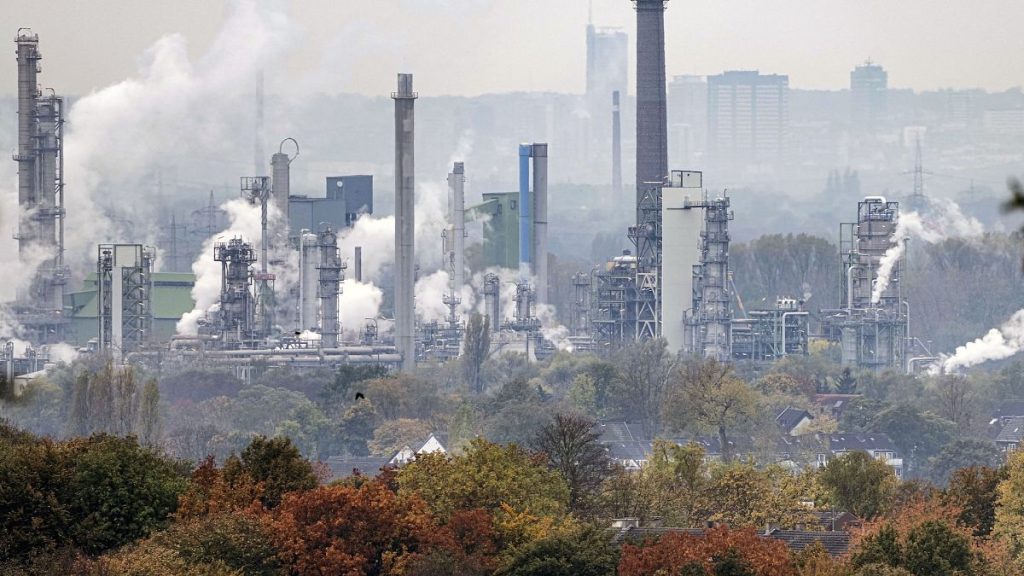Germany’s economic outlook for 2025 paints a concerning picture of stagnation and vulnerability, beset by internal structural weaknesses and external pressures. Once the economic engine of Europe, Germany is now projected to experience near-zero growth, lagging significantly behind other developed nations. This stagnation is driven by a confluence of factors, including weak export performance, subdued consumer spending, and declining investment. The ongoing challenges of decarbonization, digitalization, and demographic shifts are further dampening potential output, raising concerns about whether this period of weakness represents a temporary downturn or a more persistent structural decline.
Adding to the economic uncertainty is the scheduled February 2025 federal election. The political landscape is fraught with questions about the next government’s fiscal policies and willingness to utilize Germany’s considerable fiscal capacity, currently constrained by the “debt brake,” to stimulate growth. While an escape clause exists for immediate stimulus, the likelihood of permanently removing the debt brake, a move seen as crucial for unlocking sustained long-term investments, remains low. Experts warn that without pro-growth reforms, including tax incentives and infrastructure spending, Germany risks falling further behind its European peers. The uncertainty surrounding the elections has already negatively impacted business confidence, further delaying critical investment decisions.
A key vulnerability in the German economy lies within its once-dominant automotive sector. Traditional powerhouses like Volkswagen, BMW, and Mercedes-Benz are steadily losing market share to American and Chinese competitors, particularly in the rapidly expanding electric vehicle market. This shift is exacerbated by high energy costs in Germany and ongoing trade policy uncertainties. The relationship with China, once a primary export market for Germany, has evolved into a competitive dynamic, with China emerging as a major competitor in key industries. This changing landscape further contributes to the decline in German automobile exports and the overall dimming prospects for the sector.
Geopolitical risks, particularly rising global protectionism, pose a significant threat to Germany’s export-oriented economy. The anticipated trade policies of the incoming Trump administration are expected to have a disproportionately negative impact on Germany, increasing trade policy uncertainty and potentially leading to significant declines in GDP. This external pressure compounds Germany’s existing structural weaknesses, making the country even more susceptible to external shocks. The resulting decline in business confidence and export expectations, particularly in the crucial automotive and metal industries, further darkens the economic outlook.
High energy costs continue to burden German businesses and households. Industrial production in energy-intensive sectors has contracted significantly due to elevated gas and electricity prices, a situation unlikely to improve in 2025. Germany’s decision to phase out nuclear energy has further complicated the energy landscape, increasing reliance on more expensive and less reliable energy sources. These high energy costs are particularly detrimental to energy-intensive industries like automotive manufacturing, squeezing profit margins and potentially leading to the relocation of production facilities abroad. Inflation, though receding from its 2022 peak, remains stubbornly high, further complicating the economic picture.
Despite the predominantly bleak outlook, a more optimistic scenario remains possible. Decisive reforms aimed at lowering corporate taxes, investing in infrastructure, and addressing labor shortages through immigration and increased workforce participation could revitalize the German economy. However, without these crucial interventions, the current structural stagnation could persist well beyond 2025, hindering long-term growth prospects. Germany faces a critical juncture, requiring bold policy decisions to address both its cyclical and structural challenges and reclaim its position as a leading economic force. The confluence of internal and external pressures necessitates a comprehensive and strategic approach to unlock future growth potential and ensure long-term economic stability.














